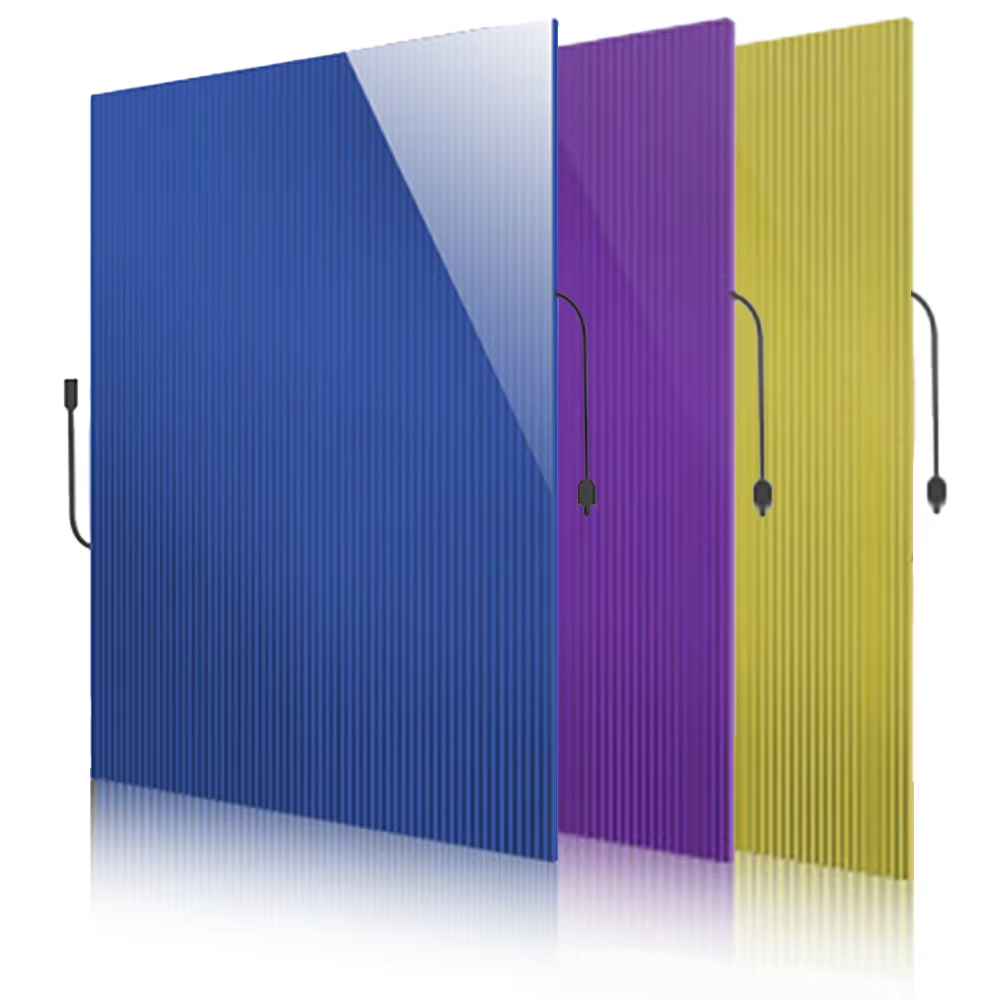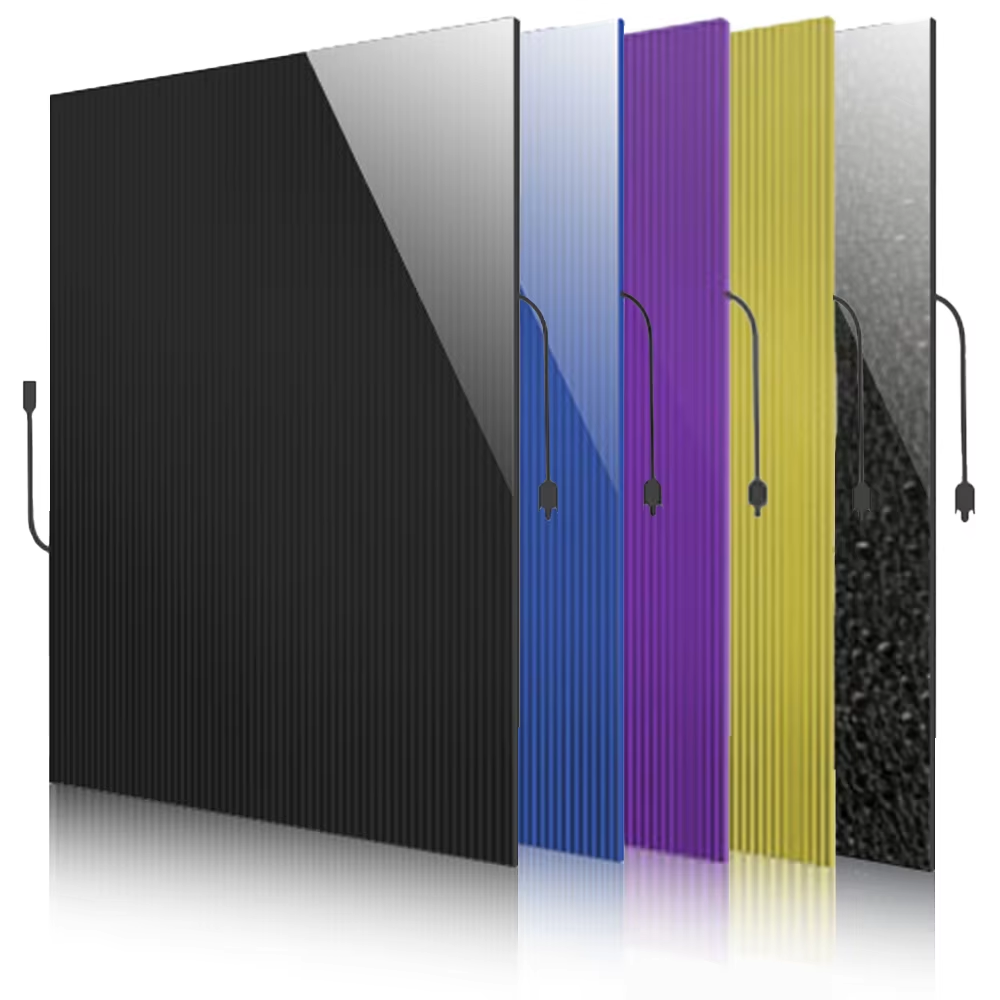The most important part of any photovoltaic system is solar panel glass. The glass determines how much sunlight reaches solar cells, how well environmental elements affect the solar panels, and how long the system continues working. AVCON Solar (https://www.avcon-solar.com/) is one of the pioneers in solar energy solutions, and one of the most important aspects of solar panel glass is quality. This is one of the reasons to deliver solar panels that work for 25 years with very minimal failures. There is no universal standard for solar panel glass. The best standards consider light transmission and longevity to prevent loss in solar panel efficiency. The canvas glass provided by solar panels is meant to protect the solar panels but still needs to transfer light.
The most important and probably the most basic standard for solar panel glass is light transmission. AVCON Solar stands for its solar panel glass to achieve light transmission of at least 90% for visible light (400-700 nm) for solar cells to work.

This ensures that glass itself reflects or absorbs minimal sunlight. Low-quality solar panel glass with transmission rates lower than 85% will immediately decrease photovoltaic efficiency by 5-10%. This is why solar panel glass has to use ultra-clear silica glass with no impurities such as iron oxides that tint glass and block light. AVCON Solar also checks solar panel glass for AR coating performance. AR coatings increase transmission by an additional 2-3% by reducing reflection. Without this standard, even high-quality solar cells will underperform, as less sunlight will translate to less energy production throughout the panel’s lifespan.
Solar panel glass also has to meet specific mechanical strength standards to avoid physical damage that glass will endure during installation, transport, and use over time. Damage such as cracks or breaks will expose solar cells to moisture and debris, eliminating photovoltaic efficiency. AVCON Solar follows international standards (like IEC 61215) where solar panel glass has to withstand certain stress tests. One example is the 2400 Pa static load test (simulating snow weight) and the 5400 Pa dynamic load test (simulating wind gusts). The solar panel glass also has to endure impact such as a 227g steel ball dropped from 1m.
These standards make sure the glass can take real-world abuse during transport and heavy snow on roofs. AVCON Solar’s solar panel glass is made with tempered glass (heat treated to strengthen glass) which is 3-5 times stronger than regular glass. If tempered solar panel glass does fail, it breaks into small, harmless pieces, which keeps safety risks low. Because of the glass’s design, there is minimum loss of the panel’s efficiency. If there are no strength standards, solar panel glass is made weak and it will fail early, shortening the lifespan of the panel.
Long term efficiency will be compromised without solar panel glass overcoming weather damage, particularly UV rays, moisture, temperature fluctuations and pollutants. AVCON Solar’s solar panel glass meets standards for weather and UV degradation (1000 kWh/m2 of UV without discoloration or peeling of the coating) and moisture (1000 hours soaking in 85 °C water without water penetration). Outside solar installations routinely expose the glass to thermal shock (cracking glass) which is tested by the glass cycling between -40 °C and 85 °C 200 times. The solar panel glass must also resist pollutants and chemical corrosion to maintain clarity.

AVCON Solar prioritizes the use of low-iron glass with durable AR coatings chemical bond technology. These coatings form a bond that will not peel or degrade after decades of exposure. Without any weather resistance protections, the glass will fade, haze over, or allow moisture ion infiltration. These factors will lower the solar panel glass efficiency by 1-2% a year and worsen the problem of early replacement of the panel.
Solar panel glass must obtain flatness and thickness uniformity standards. This is to ensure the solar cells properly align to mitigate the loss of efficiency from the refractive loss of light. As the solar glass is warped or unevenicly thick the sunlight is bent and refracted inconsistently and will reduce the amount of light that reaches the cells. AVCON Solar requires its solar panel glass to have a flatness tolerance of less than 0.2mm per meter. This means the glass surface deviates by no more than 0.2mm over a 1m span. Thickness uniformity is also critical: the solar panel glass (typically 3.2mm thick for residential panels) must have a thickness variation of less than 0.1mm across the entire sheet. These standards ensure the glass acts as a consistent “window” for sunlight.
To maintain the desired uniformity, AVCON Solar uses advanced manufacturing techniques, including the production of float glass. During this process, molten glass is floated on molten tin; this creates perfect glass that is uniform and flat. If the glass is not flat and uniform in thickness, the solar panel glass will unevenly distribute light on the solar cells. This will create ‘hot spots’ which will damage the cell and become a major factor in reducing the efficiency of the solar panel.
In order to shield the glass and boost its efficiency over time, the solar panel glass will also contain anti-soiling and anti-reflective coatings which will also function the under the glass quality limitations. AVCON Solar sets a standard of anti-reflective coatings for solar panel glass stating that AR coatings must not peel, crack, or discolor to ensure a steady light transmission of at least 90% for 25 years. The anti-soiling coatings also have standards; the solar panel glass after 500 hours of outdoor exposure must have a contact angle of greater than 110° which means the glass is self-cleaning and the dirt will be removed as water beads and rolls off the glass. Dust buildup can reduce solar efficiency by 5-10% in dry, dusty regions, making the anti-soiling panels critical in minimizing cleaning while still maintaining a high transmission.
AVCON Solar under the coating testing process exposes its solar panel glass to dust and rain, as well as UV radiation, to evaluate coating effectiveness. If there are no coating standards, AR coatings may peel, lose their impact, and anti-soiling coatings may stop repelling dirt. This loss reduces the glass’s efficiency and increases maintenance costs.
 Hot News
Hot News2025-02-25
2024-11-27
2024-12-17